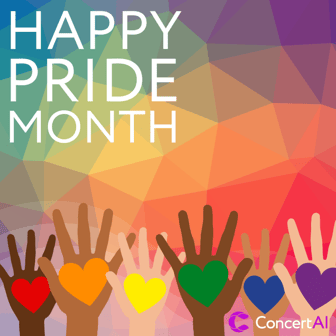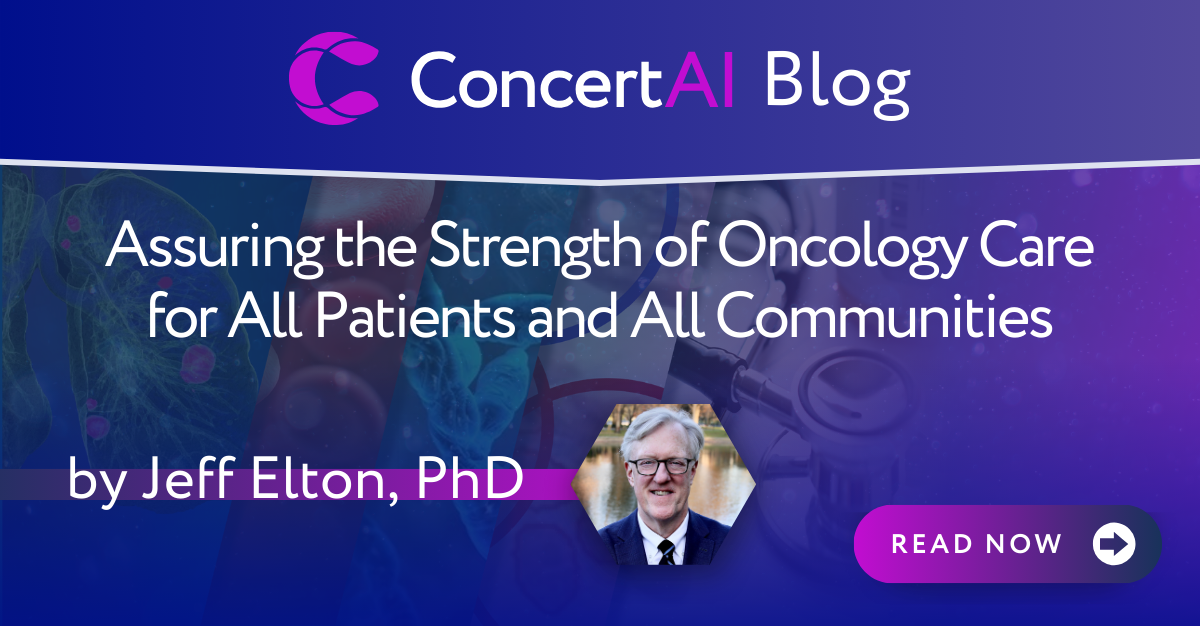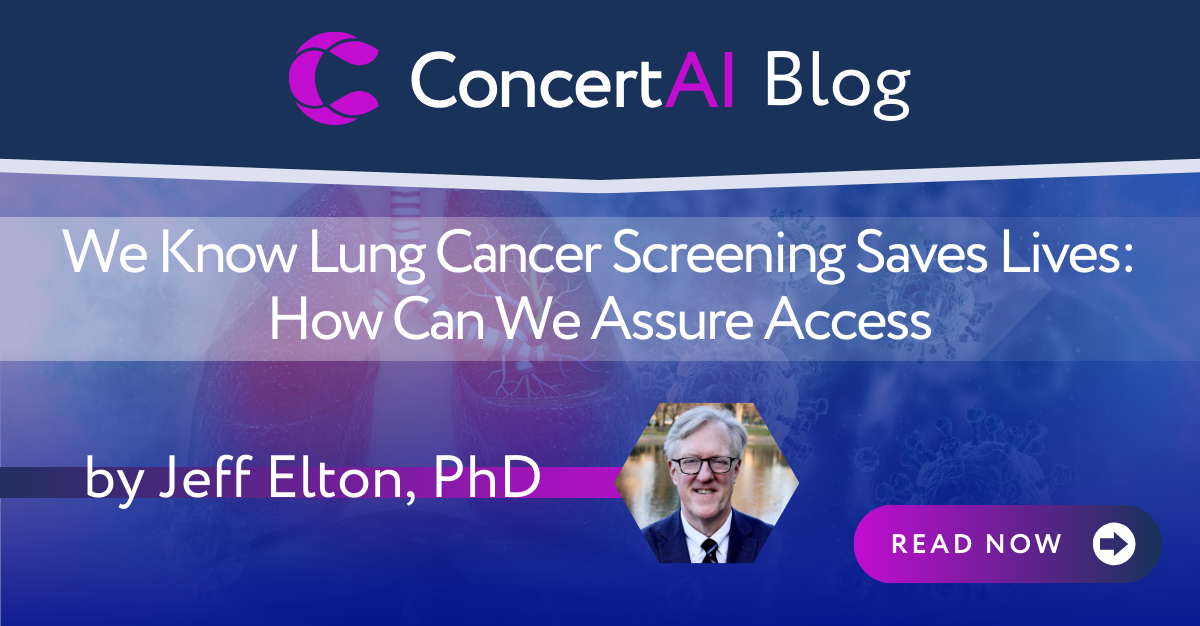A Perspective Piece on Pride Month
Lesbian, Gay, Bisexual and Transgender Pride Month (LGBT Pride Month) is celebrated annually in June to honor the 1969 Stonewall riots, which marked the beginning of a movement to outlaw discriminatory laws and practices against lesbian, gay, bisexual, transgender, questioning, intersex, asexual, two-spirit, and other affirmative ways in which people choose to self-identify (LGBTQIA2S+) Americans.

Yet while access to high quality care is a right that should be afforded to all individuals, regardless of background, members of the LGBTQIA2S+ community often face unique challenges to accessing care and may experience discrimination and stigma from healthcare providers. Recent reporting by NASEM has outlined the healthcare challenges facing this community, and recommendations to address them. But data and digital technology provide innovative tools that, through ERACE, ConcertAI is looking to address.
To-date, there is limited research on this patient population because many practices are not collecting information on sexual orientation and gender identity (SOGI), which makes it difficult to develop prevention and treatment standards. For example, only about 1 in 5 reporting National Cancer Institute Community Oncology Research Program (NCORP) community oncology practices routinely collect SOGI data. Having this information would help researchers identify patterns of discrimination and disparities in access to health services, resources, and opportunities that people with different sexual orientations and gender identities may experience, which in turn would inform policymakers and service providers on what steps to take to address these disparities and promote equal access and treatment for all.
But not having this information only exacerbates numerous healthcare disparities, such as increased risks for certain cancers, diagnoses of cancers at later stages, and lower quality of care due to stigma, cultural insensitivity, and lack of provider awareness of LGBTQIA2S+ healthcare needs. Furthermore, the incidence and mortality rates for indications such as colorectal, lung, prostate, breast, and cervical cancer among LGBTQIA2S+ members are increased when compared to the general U.S. population. As evidenced in a recent study by Stanford Medicine, it takes sexual and gender minority patients almost twice as long to receive a breast cancer diagnosis after the onset of symptoms compared with cisgender heterosexual individuals. Further, transgender individuals may have specific healthcare needs related to hormone therapy or gender-affirming surgeries that differ from those of cisgender individuals. Unfortunately, many healthcare providers have limited knowledge or understanding of these and other related issues and therefore may be unaware of the unique health risks and needs of this population. The consequence is a reduction in cultural competency, which breeds an unwelcoming environment that reduces the likelihood for self-reporting and ultimately manifests suboptimal care that exacerbates health disparities.
In response, there is growing recognition of the importance of collecting SOGI data in healthcare settings as part of the patient intake process. This requirement is aimed at improving the quality of care provided to LGBTQIA2S+ individuals and reducing health disparities among them. To aid in this collection, ConcertAI is committed to deploying digital solutions that help facilitate further self-reporting of sexual orientation and gender identity in healthcare settings. So far, this includes a reliance on healthcare systems with electronic health records (EHRs) that include fields for patients to enter their sexual orientations and gender identities. Patients can enter this information in a private and secure manner, reducing concerns about discrimination or discomfort. We also formed large-scale initiatives at the state level with the NCORP in Louisiana, in which SOGI data collection will be a key feature in our research efforts.
As such, ConcertAI is in position to analyze large amounts of data to identify patterns in patient outcomes and identify instances of suboptimal care for LGBTQIA2S+ individuals, enabling healthcare providers to address these issues and improve the quality of care provided. This data can be used to educate healthcare providers on the unique health needs and experiences of LGBTQIA2S+ individuals. Additionally, ConcertAI’s digital capabilities can identify gaps in care for LGBTQIA2S+ individuals, allowing healthcare providers to provide more targeted and effective care.
ConcertAI is helping ensure that healthcare providers have the necessary tools and resources to better understand the unique health needs and experiences of LGBTQIA2S+ individuals. It’s one piece of the many, necessary steps being taken across healthcare to foster a more welcoming environment and provide culturally competent care to every patient.

